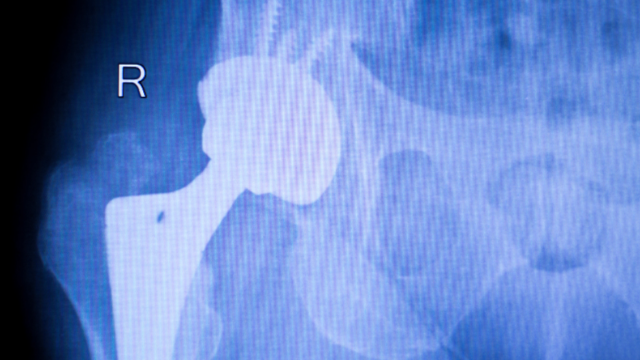Hip replacements are a common surgical procedure performed to relieve pain and improve mobility in individuals suffering from hip joint problems such as osteoarthritis, rheumatoid arthritis, or hip fractures.
The procedure involves replacing the damaged hip joint with an artificial joint called a prosthesis. The length of time a hip replacement will last depends on several factors, including the type of prosthesis used, the individual’s age and activity level, and the technique used during the surgery.
Hip Replacement Lifespan

The lifespan of a hip replacement can vary greatly, but most hip replacements last between 10 to 20 years. Factors such as age, weight, and activity level play a role in determining how long a hip replacement will last.
For example, younger and more active individuals may require a hip replacement sooner than older and less active individuals.
The type of prosthesis used during the surgery also affects the longevity of a hip replacement. There are two main types of prostheses: ceramic and polyethylene. Ceramic prostheses are made of a combination of ceramic and metal components, and are known for their durability and low wear rate.
On the other hand, polyethylene prostheses are made of a plastic material and are commonly used in hip replacements. Although polyethylene prostheses have a longer lifespan than ceramic prostheses, they are more prone to wear and tear and can become damaged over time.
In addition to the type of prosthesis used, the technique used during the surgery can also impact the longevity of a hip replacement. For example, some surgical techniques, such as the posterior approach, are known to cause less stress on the artificial joint and result in a longer lifespan.
Other techniques, such as the anterior approach, are known to result in a shorter lifespan due to increased stress on the artificial joint.
There are also other factors that can impact the longevity of a hip replacement, including the individual’s lifestyle and health. For example, individuals who smoke or have other underlying health conditions such as diabetes or obesity may experience a shorter lifespan for their hip replacement. Doing the right exercises helps as well.
Related post: Exercise bikes for seniors
In conclusion, the length of time a hip replacement will last varies greatly depending on several factors, including the type of prosthesis used, the individual’s age and activity level, and the technique used during the surgery.
While most hip replacements last between 10 to 20 years, factors such as the individual’s lifestyle and health can also impact the longevity of a hip replacement.
It is important to note that although a hip replacement may last for a significant period of time, it is not a permanent solution and may need to be replaced at some point in the future. Individuals who have received a hip replacement should follow their doctor’s recommendations for post-operative care and routine check-ups to ensure the longevity of their hip replacement.
By taking proper care of their hip replacement and making lifestyle changes to reduce the risk of damage, individuals can maximize the lifespan of their hip replacement and enjoy improved mobility and quality of life.
Despite the fact that most hip replacements last between 10 to 20 years, some individuals may require a revision surgery sooner due to complications such as loosening of the artificial joint, infection, or dislocation. Revision surgery is a more complex procedure than the initial hip replacement and involves removing the damaged artificial joint and replacing it with a new one.
It is important for individuals to be aware of the signs and symptoms that may indicate the need for revision surgery, such as persistent pain, limited mobility, or instability in the hip joint. If these symptoms are present, it is important to seek medical attention promptly to assess the cause and determine the best course of treatment.
In addition to seeking prompt medical attention for any concerning symptoms, there are also several steps individuals can take to extend the lifespan of their hip replacement. These include maintaining a healthy weight, engaging in regular physical activity, and avoiding high-impact activities such as running or jumping.
Additionally, individuals should avoid smoking, as it has been shown to increase the risk of complications and reduce the lifespan of a hip replacement.
Finally, individuals should also make sure to keep all scheduled follow-up appointments with their doctor and undergo regular imaging tests to assess the health of their hip replacement. This allows for early detection and treatment of any potential problems and helps to extend the lifespan of the artificial joint.
Summary
In conclusion, hip replacements are a common and effective way to relieve pain and improve mobility in individuals with hip joint problems. The length of time a hip replacement will last depends on several factors, including the type of prosthesis used, the individual’s age and activity level, and the technique used during the surgery.
Despite the fact that most hip replacements last between 10 to 20 years, some individuals may require revision surgery sooner due to complications. By following their doctor’s recommendations and taking steps to maintain the health of their hip replacement, individuals can extend the lifespan of their hip replacement and enjoy improved mobility and quality of life.
